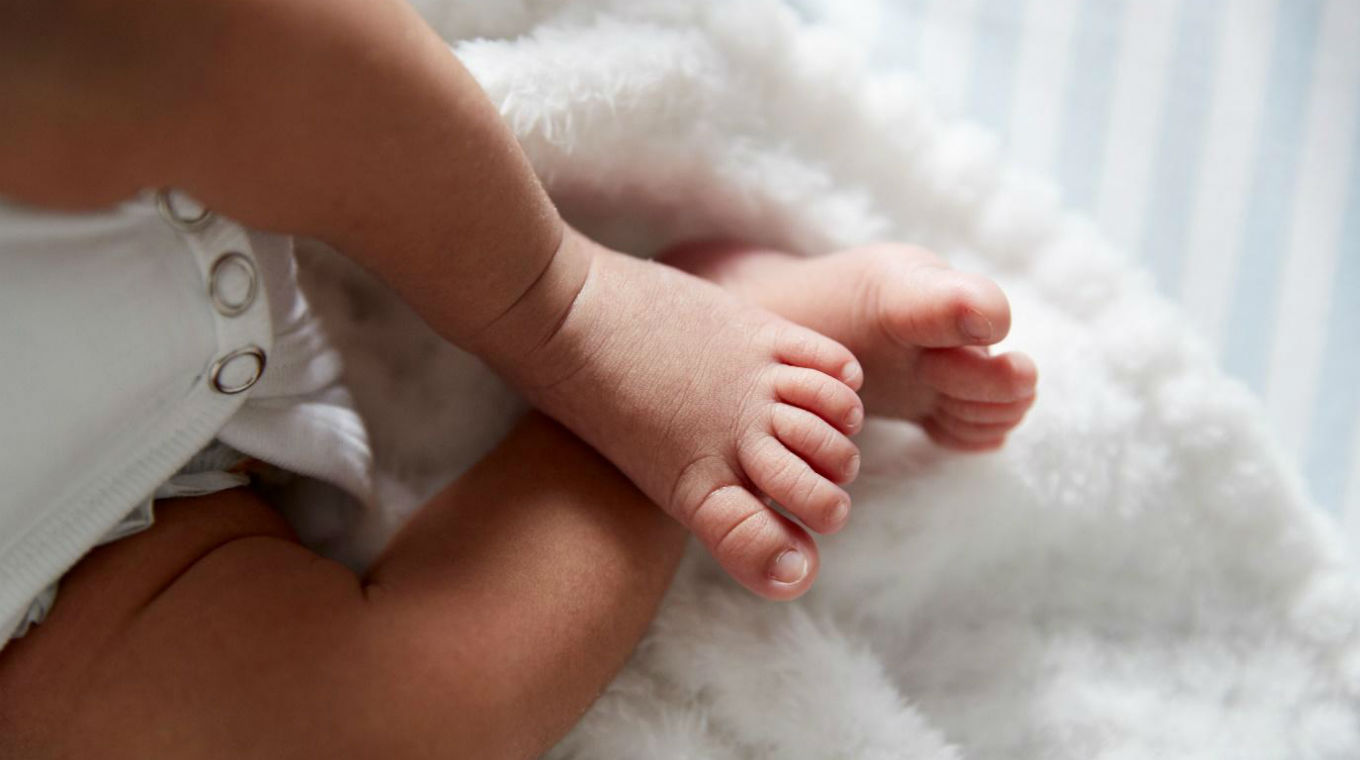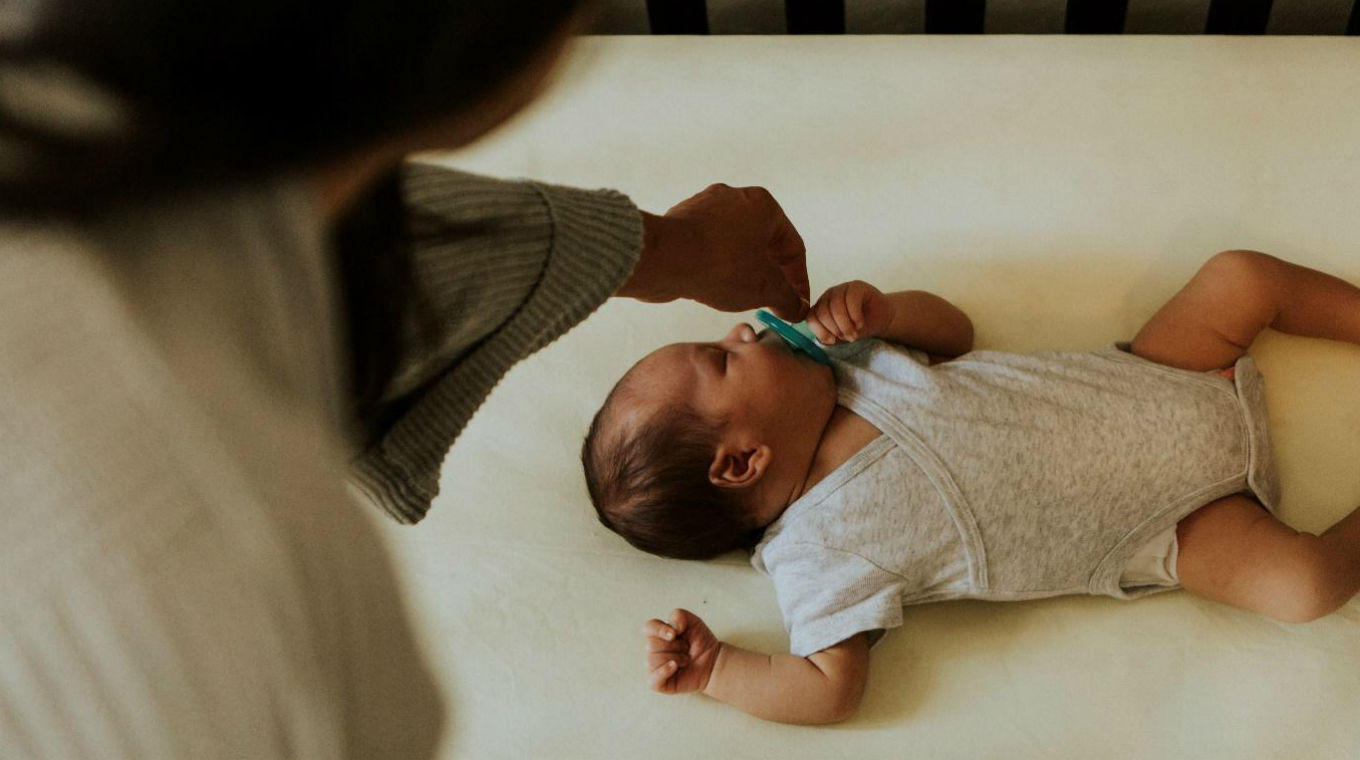
In this article
Breastfeeding can be a peaceful and effective way to get babies drowsy and relaxed, not to mention a great bonding experience, but there are times when nursing your baby to sleep could be a concern.
For instance, some infants may fall asleep at the breast before getting enough milk, which can affect baby’s weight gain and nourishment, as well as mom’s milk supply.
There’s also a worry that the habit could affect babies’ sleeping patterns and behaviors, but not everyone agrees nursing babies to sleep is a bad thing. In fact, some experts believe pushing babies to self-soothe may make mothering harder.
Every baby is different. It can be helpful to talk to a breastfeeding expert or doctor to get the full picture.

More about the issues of breastfeeding to sleep
While it’s natural for babies to doze off while breastfeeding, especially for those under 2 months old, many health experts say to refrain from it as the baby ages because the habit may lead to infant sleeping problems.
“If you do, you teach your baby to associate feeding with sleeping so that she cannot fall asleep any other way,” says the American Academy of Pediatrics. “The message interferes with your baby’s ability to sleep through the night.” Because of this sleep association, babies could need you regularly through the night — and putting babies to bed could be difficult once they wean.
It's more inconvenience than alarming
Philippa Pearson-Glaze, a La Leche League leader and UK-based international board-certified lactation consultant, thinks that the disadvantages of nursing to sleep are more about inconveniences than alarming development issues.
If your baby only falls asleep while breastfeeding, it can be hard on the mom because you’re the one soothing the baby back to sleep in the middle of the night. This can interfere with your sleep routine or create worries if you must leave your baby regularly. But this doesn’t necessarily mean it’ll break the baby’s sleep.
“A child might still enjoy breastfeeding to sleep for two or three years or longer because it would still be developmentally normal to breastfeed until then, but it definitely won’t be forever,” Pearson-Glaze wrote on a breastfeeding support website.

Signs your baby is full
Falling asleep isn’t an accurate way to know if your baby has had enough to eat. To know if babies are full and satisfied before they fall asleep, here are some of the signs to check for:
- Your breasts feel softer and less full after nursing.
- After breastfeeding, your baby seems relaxed (their face isn’t tense) and their hands are open and relaxed (not in fists).
- The baby’s body feels relaxed and loose.
- After gaining back their initial weight loss by the end of the second week, babies should gain between ½ and 1 ounce per day during the first three months. Ask your doctor for more details on weight gain.
- Milk is visibly leaking or dripping from their mouth.
- The baby is visibly swallowing (you’ll hear small clicking sounds).
Babies may also fall asleep if they’re not latched on correctly. The March of Dimes suggest breaking the latch by putting your pinky finger in the side of your baby’s mouth. Reposition your baby onto your breast so that baby’s mouth is securely attached to the nipple and areola. A lactation consultant can help make sure you’re getting baby to latch successfully.

How to keep babies awake while breastfeeding
If your baby falls asleep but you don’t think they have finished nursing, try these methods to keep your baby breastfeeding longer:
- After breaking the latch, burp your baby.
- After breaking the latch, switch your baby to the other breast if they’re dozing off.
- Try breast compression (gently squeezing to increase milk flow).
- Change your baby’s diaper.
- Tickle your baby’s feet.
- Nurse in a brightly lit area.

How to stop breastfeeding to sleep
“When I do sleep consultations, I always start with the bedtime routine and how it ends, modifying it to move the feeding earlier and disassociate it from falling asleep,” says Heather Turgeon, sleep expert and co-author of The Happy Sleeper. “That alone sometimes allows a baby to sleep longer stretches. Next, you could decide to keep in one feeding and wean the rest gradually (or wean them all if you’d like).”
Put babies to bed drowsy but awake. You can also help break the nursing and sleeping connection by giving babies a pacifier. Try other sleep associations, such as bathing, singing, or reading, instead of breastfeeding last to signal the end of the day. And when they’re awake, give babies lots of attention to help them feel calm and secure. Gradually, your baby will learn how to fall asleep more independently.




